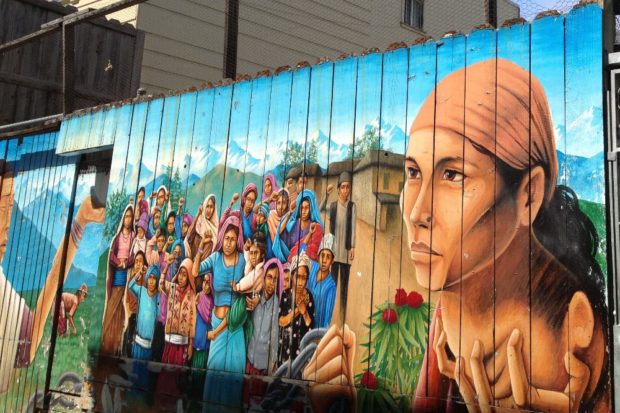
By Samuel Molina
Congress made further attempts last year to remove provisions from the Affordable Care Act, therefore it is necessary to remain vigilant and do all that can be done in each state to ensure that all residents have access to healthcare. Sharing the story of a friend and her battles with accessing preventive medical care will help shed light on the struggles immigrants face in our country.
Yesenia, a mother of three, migrated to the United States nearly 15 years ago with her family, making her home in the Central Valley. She, like many other immigrants, worked in the fields and food packing houses and cleaned houses to help her husband pay the bills and provide for their family.
She was diagnosed with Type 2 diabetes after giving birth to her second daughter. Like many other immigrants without a status, she did not have access to healthcare, and going to the doctor for regular checkups and medicine was too expensive.
Yesenia always put her family first and sought different ways to achieve her and her family’s American dream. She opened an advertising business that allowed her family to have a better life and even employed U.S. citizens. She always felt proud that even though she did not have papers she was able to find ways to prosper.
Three years ago, Yesenia’s diabetes caught up with her and because she did not have access to preventive care (e.g., Medi-Cal), her symptoms became much worse. She had a retinal detachment and lost her vision in her left eye. One year later, she was diagnosed with chronic kidney disease and is now awaiting a kidney transplant.
Although she now has Medi-Cal, all her complications could have been prevented if Yesenia had earlier access to quality healthcare. The numerous health complications made it hard for her to maintain her business.
Because of her immigration status, even though she has worked here for many years and paid her fair share of taxes, she is not able to apply for unemployment or collect Social Security benefits. How many more people must go through situations like this before we realize that healthcare is a human right? If someone is contributing to the system and paying taxes like many undocumented people do, that person should be able to go see a doctor as needed; one should not have to choose between buying insulin or paying rent.
Yesenia’s consultations run about $100 each, not including her medicine that is also expensive. Even though she now has Medi-Cal, that does not cover all the medicine she needs because of her condition.
Yesenia currently qualifies for a kidney and pancreas transplant, which has a shorter wait time because not a lot of people are candidates for this type of transplant. However, there are a lot of requirements to become a candidate and even though she is a candidate she is not able to get this transplant because her insurance will not cover it.
It is agonizing to have to tell someone in this situation that a transplant is unattainable because of one’s immigration status. This transplant means a lot to Yesenia and her family as it is a chance to have a better quality of life and to continue pursuing her dreams—dreams that she now has had to put on hold because of her diabetes.
The Affordable Care Act (ACA) helped four million Latinos gain access to healthcare, and in California DACA (Deferred Action for Childhood Arrival) recipients can get healthcare access via the ACA.
But what about our parents? What are we supposed to do when the laws of our country haven’t changed to recognize our parents and their contributions? We shouldn’t have to wait until someone is close to death before we start providing them the appropriate medical care; we should be providing preventive care before the illness gets worse.
This reality is just one of many that immigrants living and working in our country must face. We must do more to ensure immigrants have access to better healthcare for the sake of all our communities.
*****
Samuel Molina is the state director of Mi Familia Vota. Contact him at samuelm@mifamiliavota.org or on Twitter @SMolinafca. Like/follow Mi Familia Vota on Facebook/Twitter/Instagram @MiFamiliaVota

Thank you for sharing this!